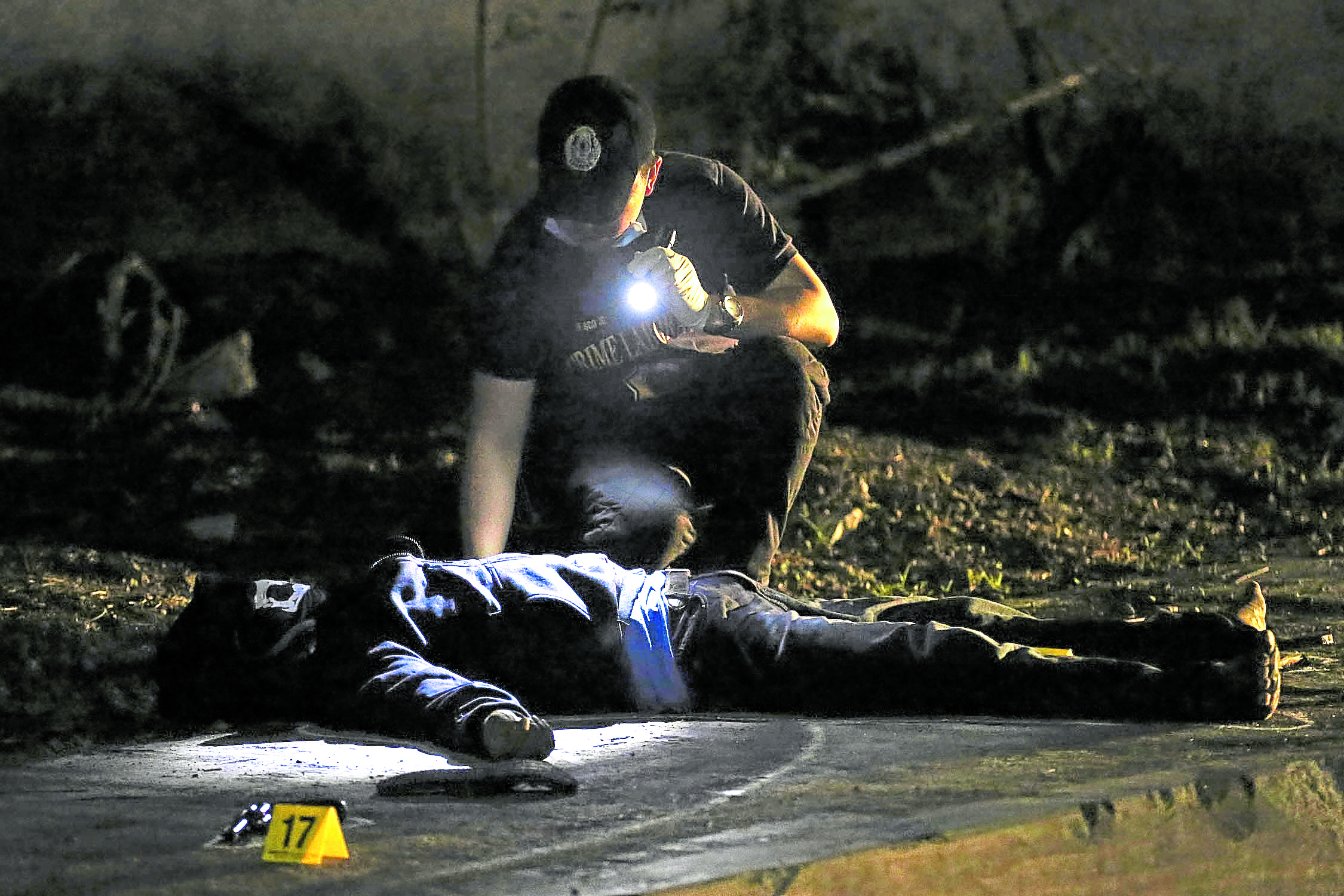
WAR ON DRUGS A police investigator inspects the body of a suspected victim of extrajudicial killing. INQUIRER FILE PHOTO
MANILA, Philippines — After months of downplaying the ongoing International Criminal Court (ICC) investigation of allegations of crimes against humanity against President Duterte in the drug war, the Philippines has formally asked the Netherlands-based court to defer the probe to give way to domestic efforts to investigate the same crimes.
In a Nov. 10 letter, the Philippine Ambassador to the Netherlands, Eduardo Malaya, told the court based in The Hague that the Philippine government was “investigating or has investigated its nationals or others … with respect to the alleged crimes against humanity of murder under Article 7(1) of the Rome Statute,” the treaty that established the ICC.
The letter comes over a month since the court’s Pre-Trial Chamber (PTC) authorized a full-blown investigation of the drug war from Nov. 1, 2011, when Duterte was still mayor of Davao City up to March 19, 2019, after the Philippines withdrew from the treaty.
On Sept. 15, the PTC said it found “reasonable basis for the prosecutor to proceed with an investigation” of the “widespread and systematic attack against the civilian population [that] took place pursuant to or in furtherance of a state policy.”
No authority
Malacañang had argued that the ICC had no authority to inquire into the drug war because suspects who committed violations in the conduct of the antinarcotics campaign were already being prosecuted under the country’s justice system.
Malaya essentially invoked Article 17 of the Rome Statute on the principle of complementarity, which means that the ICC may only exercise jurisdiction when national legal systems fail to genuinely prosecute crimes under international law.
To back his claims, the ambassador cited, among others, the ongoing Department of Justice (DOJ) review of 52 drug raids between 2016 and 2021 that resulted in deaths.
These 52 cases, Malaya added, “signal(ed) the start of the DOJ’s review of the over 6,000 administrative cases” pending under the Philippine National Police’s Internal Affairs Services docket.
However, law group Center for International Law, or CenterLaw, which was one of the petitioners that asked the Supreme Court to have the drug war declared unconstitutional, said the government’s claims “could not be further from the truth.”
“On the contrary, the fact that only 52 cases of the estimated 30,000 killed have been reviewed reveals that the government’s feigned compliance with international justice was paper-thin,” it said.
DOJ review
Malaya also cited the DOJ review of over 300 cases in the dockets of the National Prosecution Service of completed and ongoing preliminary investigations of similar deaths.
To counter claims by human rights groups that the country has no effective domestic legal mechanism for redress, Malaya said there were several civil and administrative remedies for victims of the drug war, including the option to file a writ of amparo or writ of habeas data.
A writ of amparo is a remedy available to anyone whose right to life, liberty and security is violated or threatened, while habeas data is a remedy for persons whose right to privacy of life, liberty and security is violated or threatened by unlawful acts.
In reality, however, drug war victims and activists who have sought help from the Supreme Court have rarely been granted these extraordinary writs.